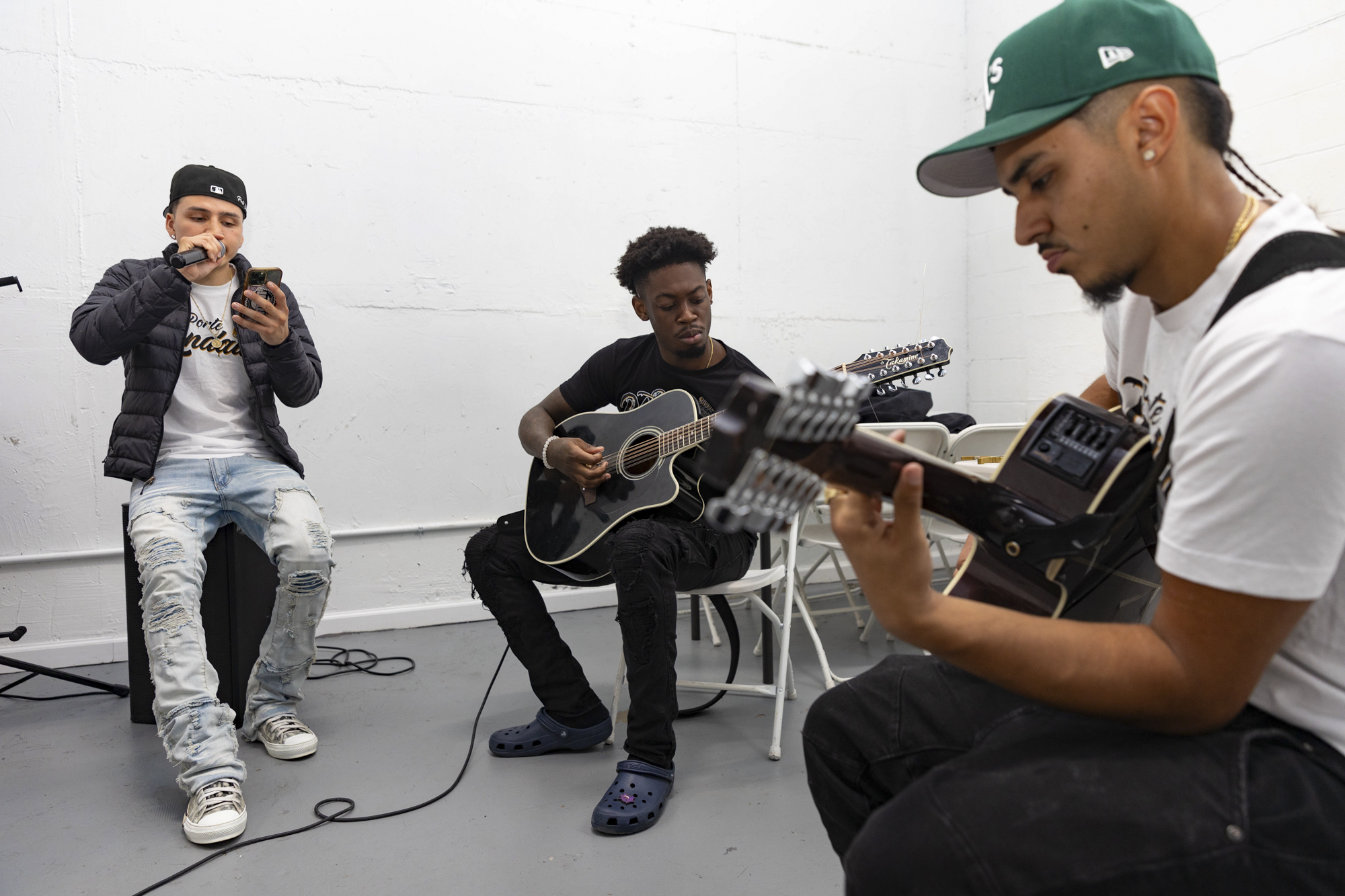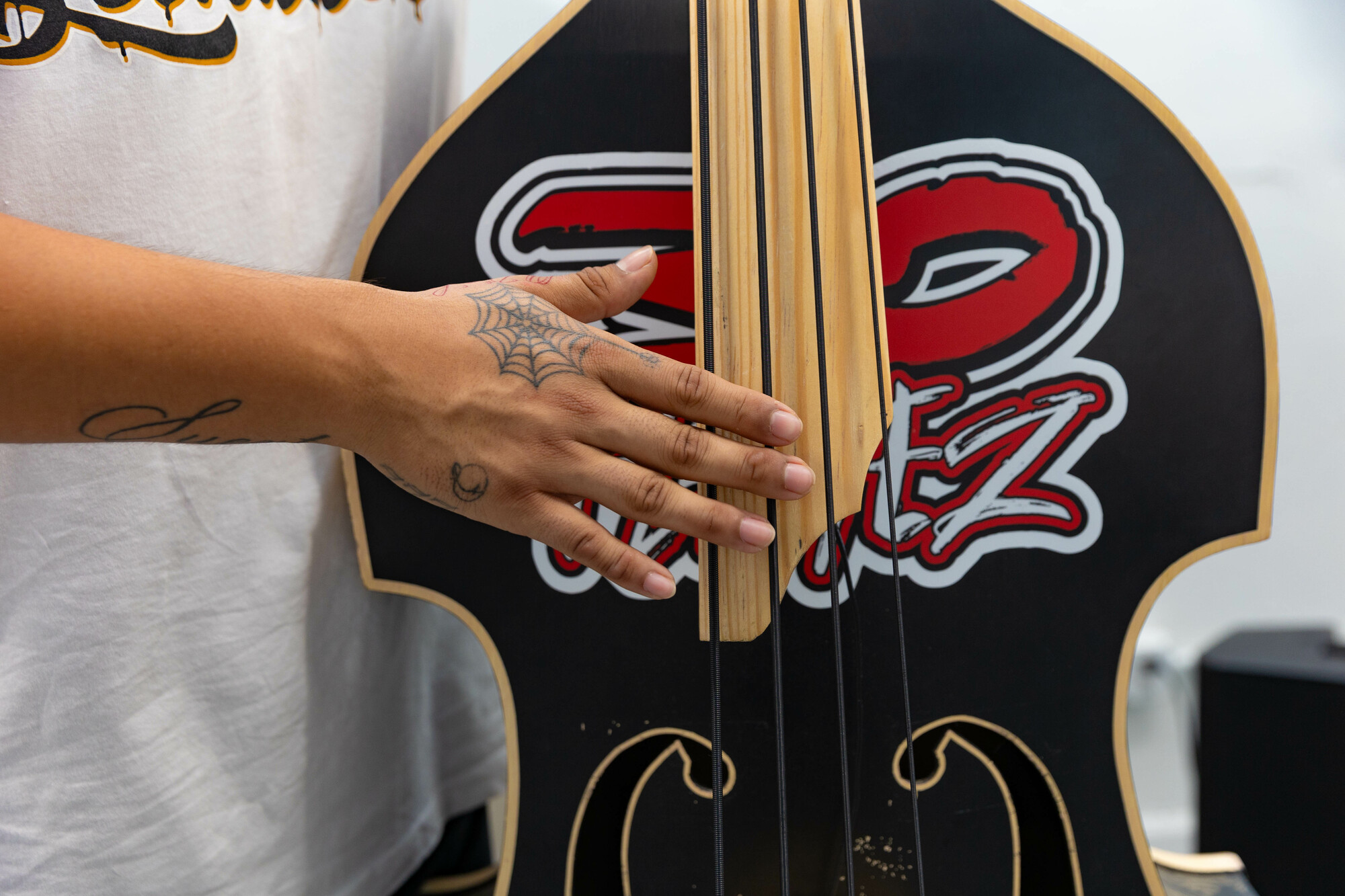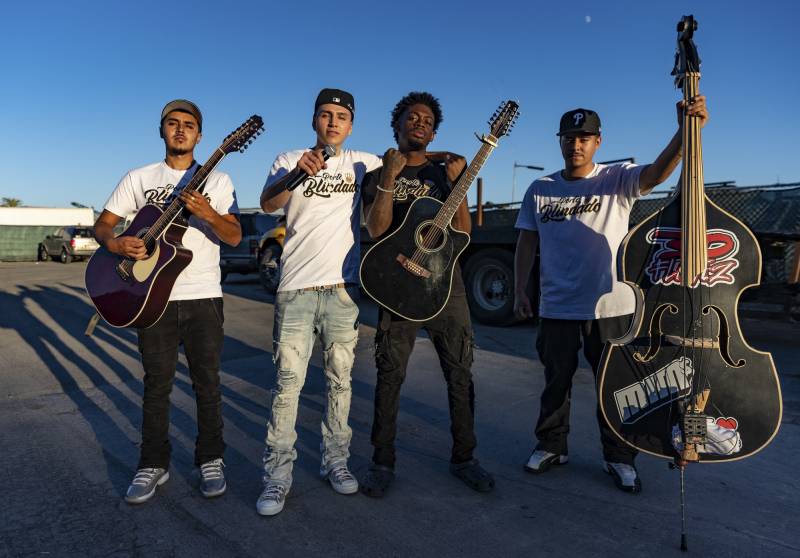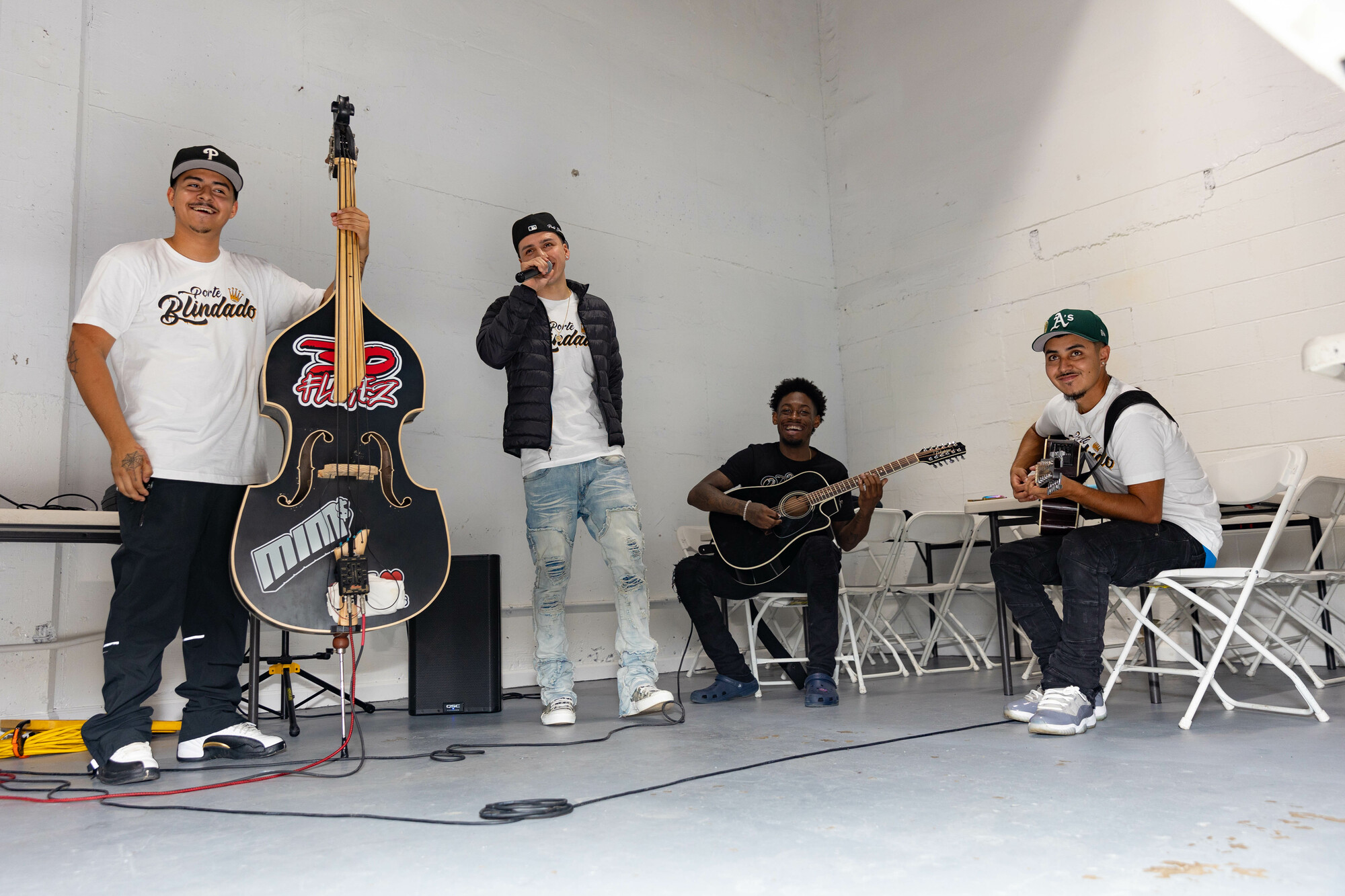Porte Blindado are locked in. At least three times a week, the four young musicians haul amps, guitars and an upright bass into a small warehouse tucked between window-tinting shops and mechanics’ garages in Deep East Oakland. This is where vocalist Andres “AR” Rosillo, guitarists Pedro “Peaz” Zamora and Jemmiel Moore and upright bassist Luis Hernandez come together to perfect their distinctly Bay Area take on Mexican regional music.
“I feel like growing up and being born in the Bay area, we talk a certain way, dress a certain way, so the norm is very different when you go play in a grupo and they see you show up in some T-shirts and sneakers, compared to the traditional sombrero and botas,” says Peaz, who’s sporting Jordans and an A’s hat with a braided rat tail sticking out. “Our version catches a lot of people off guard, like, ‘Who are these kids?’”
“But you are who you are at the end of the day,” he adds with a shrug. “Sometimes you gotta let the norm change with you.”

While high-drama corridos, brass-heavy banda and sierreño ballads have been in heavy rotation in Mexican American households for generations, a new crop of superstars — including Peso Pluma, Natanael Cano, Junior H and DannyLux — have reimagined these styles for a younger generation and attracted a global following. Porte Blindado, whose members range from 19 to 23 years old, are following in the footsteps of California bands like Eslabon Armado and Fuerza Regida, who’ve helped bring regional Mexican music into the U.S. mainstream.
Before Fuerza Regida got big enough to headline arenas all over the U.S. and Mexico, they were a cover band gigging at private parties in their hometown of San Bernardino. That’s the stage where Porte Blindado currently find themselves: Putting out original material and playing their own shows while sustaining the band financially through quinceñeras, weddings and other privadas.

Corridos are all about telling a good story, and although Porte Blindado have yet to release a debut album, they’ve built up momentum this year through a consistent stream of singles that have a hard edge, with Spanish-language lyrics whose themes often overlap with Bay Area rap. The group’s songwriting is exhilarating on “Es Talento,” where AR narrates a hair-raising tale of a cannabis warehouse robbery while Moore and Zamora shred on dueling guitars and Hernandez slaps his bass like his life depends on it. Their irreverent and supremely catchy track “Mi Madre Dice” revels in the dark side of street life. Meanwhile, “Gorrita de Fox” is an anthem about showing out in style.



